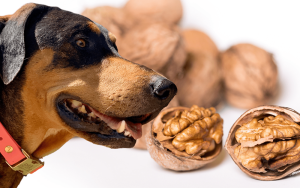Can Dogs Eat Pears? A Comprehensive Guide to Pears for Dogs and Their Health Benefits

As pet owners, we always seek the best food options for our dogs. A common question that often arises is whether dogs can eat pears. Pears are a sweet and nutritious fruit, but are they safe for our furry companions? In this article, we will dive deep
into the safety, health benefits, and potential risks of feeding pears to dogs. By the end, you will have a clear understanding of how to incorporate pears into your dog’s diet safely and how they contribute to overall canine health.
1. Are Pears Safe for Dogs?
Yes, pears are generally safe for dogs to eat in moderation, provided they are properly prepared. Pears are rich in nutrients such as vitamins, fiber, and antioxidants, which can be beneficial to your dog’s health. However, just like with any fruit, it’s
essential to take some precautions before offering pears to your pet.
Preparation Tips:
- Remove the seeds and core: Pears contain seeds that, like those of apples, contain cyanide, which can be toxic to dogs in large quantities. Always ensure that you remove the seeds and the core before offering pears to your dog.
- Cut into bite-sized pieces: Large chunks of pear can pose a choking hazard, especially for smaller dogs. Cutting the pear into manageable, bite-sized pieces reduces this risk.
- Moderation is key: Although pears are healthy, they should only be given in moderation. Too much of any fruit, including pears, can lead to digestive upset or weight gain.
2. Health Benefits of Pears for Dogs
Pears provide several health benefits for dogs due to their nutrient profile. Here’s a closer look at the specific nutrients found in pears and how they can support your dog’s well-being:
High in Fiber:
Pears are an excellent source of dietary fiber, which can aid in digestion. Fiber helps regulate bowel movements and supports gut health. Including pears in your dog’s diet in moderation can assist in preventing constipation and promote a healthy digestive
system.
Rich in Vitamins:
Pears are loaded with vitamins that support a dog’s overall health. Some of the key vitamins include:
- Vitamin C: This antioxidant vitamin boosts the immune system and helps combat infections. It also promotes healthy skin and a shiny coat.
- Vitamin K: Essential for proper blood clotting and bone health, vitamin K plays a crucial role in keeping your dog’s bones and joints healthy.
- Vitamin A: Known for promoting good vision and skin health, vitamin A also supports the immune system.
High in Antioxidants:
Pears contain antioxidants such as flavonoids, which help protect the body from oxidative stress and free radical damage. Antioxidants are essential for preventing chronic diseases, reducing inflammation, and maintaining healthy tissues in dogs.
Hydration:
Pears have a high water content, which can help keep your dog hydrated. This is especially beneficial for dogs that may not drink enough water on their own. Adding pears to their diet can be a tasty way to encourage hydration.
3. Potential Risks of Feeding Pears to Dogs
While pears are generally safe for dogs, there are some potential risks that pet owners should be aware of:
Choking Hazard:
As mentioned earlier, pears should be cut into small, manageable pieces to avoid choking hazards. The core and seeds, in particular, can be a choking risk and may cause blockages in the digestive tract.
Gastrointestinal Upset:
Feeding your dog too many pears at once can lead to digestive issues like diarrhea or stomach discomfort. The high fiber content, while beneficial in moderation, may cause gas, bloating, or diarrhea if consumed in excess. Start with a small amount and
monitor your dog’s reaction before offering more.
Sugar Content:
Pears are naturally sweet and contain sugar. While this sugar is natural, it can still contribute to weight gain and other health issues if given in large quantities. If your dog is overweight or has diabetes, it’s essential to limit the amount of pears
you offer them and consult your veterinarian about appropriate portion sizes.
Allergic Reactions:
Though rare, some dogs may have an allergy to pears. Symptoms of a pear allergy in dogs include itching, swelling, hives, or gastrointestinal upset. If you notice any adverse reactions after feeding your dog pears, stop offering them immediately and consult
your vet.
4. How to Safely Introduce Pears to Your Dog’s Diet
Introducing new foods into your dog’s diet should always be done gradually. Follow these steps to safely incorporate pears into your dog’s meals:
Step 1: Start Small
Begin by offering your dog a small piece of pear and observe how they react. If your dog shows no signs of digestive upset or allergic reactions, you can gradually increase the amount.
Step 2: Remove the Seeds and Core
Before giving your dog a pear, make sure to remove the seeds and core. These parts of the fruit are not only a choking hazard but can also be toxic in large quantities.
Step 3: Monitor for Digestive Issues
After giving your dog pears, watch for any signs of digestive distress, such as diarrhea, vomiting, or bloating. If any of these symptoms occur, reduce the amount of pear given and consult your vet if the problem persists.
Step 4: Use Pears as a Treat, Not a Meal
Pears should be considered an occasional treat rather than a regular part of your dog’s diet. While they offer health benefits, they should not replace your dog’s balanced, complete dog food. Treats should make up no more than 10% of your dog’s daily
caloric intake.
5. Can Dogs with Specific Health Conditions Eat Pears?
Dogs with Diabetes:
If your dog has diabetes, pears can still be fed, but they must be given in moderation due to their natural sugar content. Always consult with your vet to ensure that pears do not interfere with your dog’s blood sugar levels.
Overweight Dogs:
For overweight dogs, pears can be a healthy, low-calorie treat compared to high-fat or high-calorie snacks. However, portion control is essential to prevent adding unnecessary calories to your dog’s diet.
Dogs with Kidney Issues:
If your dog has kidney disease, you should avoid giving them pears regularly due to their high potassium content. Always consult your vet before adding any fruit to the diet of a dog with kidney issues.
6. Other Fruits That Are Safe for Dogs
If your dog enjoys pears, you may be wondering what other fruits are safe for them to eat. Here’s a list of other dog-friendly fruits:
- Apples (without seeds and core): A great source of fiber and vitamins.
- Bananas: Packed with potassium and low in calories.
- Blueberries: Rich in antioxidants and a great snack for dogs.
- Watermelon (without seeds): A hydrating fruit that’s perfect for hot days.
- Strawberries: High in fiber and vitamin C.
7. Conclusion: Can Dogs Eat Pears?
In conclusion, pears can be a healthy and delicious treat for your dog when prepared correctly and given in moderation. They offer a range of health benefits, including fiber, vitamins, and antioxidants that support your dog’s immune system, digestion,
and overall well-being. However, it’s essential to remove the seeds and core, and always serve pears in bite-sized pieces to minimize any risk of choking or digestive issues.
As with any new food, it’s important to introduce pears into your dog’s diet slowly and monitor for any adverse reactions. If you have any concerns or your dog has specific health conditions, it’s always best to consult with your veterinarian before offering
pears or any other new food.
By following these simple guidelines, you can safely add pears to your dog’s diet and enjoy the health benefits that come with it. Remember, moderation is key to a balanced, healthy diet for your pet.
FAQs About Pears for Dogs
-
Can dogs eat pear skins?Yes, dogs can eat the skin of pears, but it should be thoroughly washed to remove pesticides or contaminants. If your dog has a sensitive stomach, you might want to peel the pear before giving it to them.
-
Can pears cause diarrhea in dogs?If given in excess, the fiber in pears can cause diarrhea in dogs. Always feed pears in moderation to avoid gastrointestinal upset.
-
How many pears can I give my dog?A small piece of pear, about one or two bites, is sufficient as a treat for your dog. Large portions should be avoided to prevent overconsumption of sugar and fiber.
-
Can puppies eat pears?Yes, puppies can eat pears, but like adult dogs, they should only receive small, carefully prepared pieces to avoid choking.
By following these expert tips, your dog can enjoy pears safely as part of a varied and nutritious diet!






